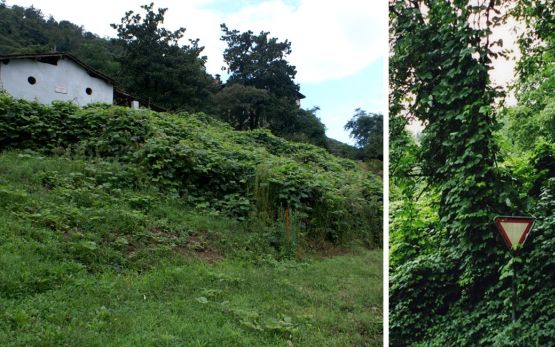Invasive species are spreading ever more in our globablised world. Agroscope is investigating the consequences that this will have for Switzerland, and what can be done to counteract this trend.
Globalisation is also occurring in nature. Together with the rise in tourism and goods traffic, more and more plants and animals from all four corners of the world are emigrating from their original habitats to new ones. In Switzerland, more than 350 non-native plant species - so-called neophytes - can be found in nature. A number of these accidentally brought-in or deliberately introduced species can turn into problems suddenly since they reproduce too prolifically, thereby becoming invasive. Like Ambrosia, for example, they may be harmful to human health, or, like Japanese knotweed, they may damage buildings and infrastructure or even crowd out native species. Consequently, they are deemed worldwide to be one of the major causes of extinction of animal and plant species.
A striking example of this is kudzu or Pueraria lobata. This Asian liana is one of the 100 worst invasive species worldwide, as it overruns huge areas. In Ticino, where it has been found at 30 different sites, shoot growth of up to 26 cm a day was measured. This means that kudzu can cover the ground with several plant layers, thereby crowding out native plant and animal species.
Countermeasures must be developed and implemented on various levels - regional, national and international. To this end, Agroscope is taking part in a number of projects on invasive neophytes. Currently, for example, our researchers are investigating efficient kudzu-control measures in the field. Moreover, they are developing risk analyses for invasive plants in international expert groups, and together with other partners maintain an online information platform on Ambrosia.






